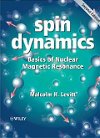Constraining Binding Hot Spots: NMR and Molecular Dynamics Simulations Provide a Structural Explanation for Enthalpy−Entropy Compensation in SH2−Ligand Binding
Joshua M. Ward
†, Nina M. Gorenstein
†, Jianhua Tian
‡, Stephen F. Martin
‡ and Carol Beth Post
*†
Department of Medicinal Chemistry, Markey Center for Structural Biology, and Purdue Cancer Center, Purdue University, West Lafayette, Indiana 47907, and Department of Chemistry and Biochemistry and The Institute of Cellular and Molecular Biology, The University of Texas, Austin, Texas 78712

NMR spectroscopy and molecular dynamics (MD) simulations were used to probe the structure and dynamics of complexes of three phosphotyrosine-derived peptides with the Src SH2 domain in an effort to uncover a structural explanation for enthalpy−entropy compensation observed in the binding thermodynamics. The series of phosphotyrosine peptide derivatives comprises the natural pYEEI Src SH2 ligand, a constrained mimic, in which the phosphotyrosine (pY) residue is preorganized in the bound conformation for the purpose of gaining an entropic advantage to binding, and a flexible analogue of the constrained mimic. The expected gain in binding entropy of the constrained mimic was realized; however, a balancing loss in binding enthalpy was also observed that could not be rationalized from the crystallographic structures. We examined protein dynamics to evaluate whether the observed enthalpic penalty might be the result of effects arising from altered motions in the complex.
15N-relaxation studies and positional fluctuations from molecular dynamics indicate that the main-chain dynamics of the protein show little variation among the three complexes. Root mean squared (rms) coordinate deviations vary by less than 1.5 Ċ for all non-hydrogen atoms for the crystal structures and in the ensemble average structures calculated from the simulations. In contrast to this striking similarity in the structures and dynamics, there are a number of large chemical shift differences from residues across the binding interface, but particularly from key Src SH2 residues that interact with pY, the “hot spot” residue, which contributes about one-half of the binding free energy. Rank-order correlations between chemical shifts and ligand binding enthalpy for several pY-binding residues, coupled with available mutagenesis and calorimetric data, suggest that subtle structural perturbations (<1 Ċ) from the conformational constraint of the pY residue sufficiently alter the geometry of enthalpically critical interactions in the binding pocket to cause the loss of binding enthalpy, leading to the observed enthalpy−entropy compensation. We find no evidence to support the premise that enthalpy−entropy compensation is an inherent property and conclude that preorganization of Src SH2 ligand residues involved in binding hot spots may eventuate in suboptimal interactions with the domain. We propose that introducing constraints elsewhere in the ligand could minimize enthalpy−entropy compensation effects. The results illustrate the utility of the NMR chemical shift to highlight small, but energetically significant, perturbations in structure that might otherwise go unnoticed in an apparently rigid protein.
Journal of the American Chemical Society, Volume 132, Issue 32, Page 11058-11070, August 18, 2010.
Source:
JACS



